This article was co-authored by Trudi Griffin, LPC, MS. Trudi Griffin is a Licensed Professional Counselor in Wisconsin specializing in Addictions and Mental Health. She provides therapy to people who struggle with addictions, mental health, and trauma in community health settings and private practice. She received her MS in Clinical Mental Health Counseling from Marquette University in 2011.
There are 9 references cited in this article, which can be found at the bottom of the page.
This article has been viewed 35,447 times.
Dealing with anxiety disorders can be a difficult thing. It may be even more difficult if you are doing it alone. Friends and family can provide important support if you suffer from an anxiety disorder, but sometimes the thought of telling them about your condition causes even more anxiety. Learn how to approach your friends about your anxiety disorder so you can receive the support you need.
Steps
Gathering Information to Tell Friends About Your Anxiety
-
1Write down your thoughts. Since telling your friends about anxiety may cause you anxiety, you should help yourself by getting your thoughts together beforehand. If you get anxious and upset while talking to your friends, you may not be able to get words out.[1]
- Make a list of points you want to make, things you want to say, or ideas you want to address when you talk to your friends.
-
2Make a list of people you want to tell. After you write down your thoughts, you should start a new list. Carefully decide who you want to tell about your anxiety disorder. Consider who the person is to you. Ask yourself why you want to tell this person. You should also decide if you feel comfortable with this person knowing.[2]
- Figure out if you believe the person you want to tell is supportive. How has this person reacted when you’ve shared things with him or her before?
- You also should think about whether you want help from the person or if you simply just want them to know.
- For example, you may want to tell your immediate family, your partner, and your best friends about your anxiety disorder because you spend the most time with them. However, you may also want to tell the person you share your office with about your anxiety disorder in case you face anxiety while at work.
Advertisement -
3Outline how much detail you want to give your friends. Depending on who you tell, the amount of information you share with that person may change. You should consider how much about your disorder you feel comfortable sharing.
- For example, you may decide to be completely honest with your parents, spouse, or best friend. But you may limit how much detail you give your co-worker.
- Figure out how much you feel comfortable sharing with your friends. You should also consider why they need to know certain details. Some people may not need to know about medication or some of the ways anxiety keeps you from certain activities.
-
4Gather resources for your friends. Unless your friends know someone else with an anxiety disorder, they may have no experience with it. They may also not have any knowledge about anxiety, anxiety disorders, panic disorders, or mental health issues. Put together some resources for them so they can learn more about it.
- For example, you may want to put together a list of websites for them to look at that explain anxiety disorders. You may want to include some first-hand accounts from people who live with anxiety disorder.
- If you are working with a counselor, then your counselor may have resources that you can share with your friends, such as pamphlets or a list of websites. Ask your counselor if he or she would be willing to share some of these resources with you.
-
5State the kind of help you need from your friends. When you decide to tell your friends about your disorder, you should also decide if you want any help from them. If you do want help, you should decide beforehand the kind of help you need. You can write this on the same sheet you wrong your thoughts, or you can include this information on the list of people you want to tell.[3]
- Be as specific as possible about what you need from your friends. This helps them know what you expect from them so there is no miscommunication, which can cause more anxiety for you.
- For example, you may need your spouse or roommate to watch you carefully and alert you to any changes in behavior you might not be aware of. You may need your best friend to call you if you haven't called in two days. You may need your co-worker to not get offended if you have a mood swing due to an anxiety attack at work.
-
6Remind yourself you are not bothering your friends. One reason people may resist telling their friends and family about their anxiety disorder is because they feel they are bothering their friends with their problems. This is not true. Your friends care about you, and they are a wonderful source of support for you as you manage your disorder.
- Your friends come to you with their problems, and you should be able to go to your friends with your problem, even if it is a chronic problem.
- Think about your situation like this: If you had a medical problem, such as diabetes, cancer, or a broken leg, would you go to your friends? Mental disorders are just as important as physical disorders.
Educating Your Friends About Your Anxiety Disorder
-
1Explain the difference between an anxiety disorder and normal anxiety. Some people may not understand that an anxiety disorder is very different than normal anxiety. Your friends may think you just have normal anxiety like they do if you tell them you have an anxiety disorder. You need to try and explain the way you feel as best as you can.[4]
- For example, you can tell your friends, "My anxiety feels different than what you feel before a big presentation, before starting a new job, or before you take a test."
- You may explain your anxiety to your friends by saying, "The anxiety that I feel is so much worse than what you feel. Imagine the worst anxiety you have ever felt, then multiply that feeling by 10. That's how I feel sometimes."
- If at first, your friends equate your anxiety with the anxiety they feel, this doesn’t mean your friends are not understanding, but people who don’t go through the intense anxiety associated with an anxiety disorder may have a difficult time understanding you.
- Just remember, you should not feel anxiety if you can’t make your friends understand exactly how you feel. They may never truly understand what you go through, but they may be aware of how it affects you differently.
-
2Outline the symptoms of your anxiety disorder. One thing you might want to explain to your friends is the symptoms that go along with your anxiety disorder. This way, if you start acting anxious or responding differently, your friends will be aware of what is happening. If they can identify when you have an anxiety attack, they can help you. The symptoms of anxiety disorders include:[5]
- Restlessness or feeling on edge
- Fatigue
- Difficulty concentrating
- Feeling irritable
- Having tense muscles
- Extreme, uncontrollable sense of worry
- Insomnia or being unable to stay asleep
- Feelings of intense fear
- Feeling like you have no control
- Feeling anxious about being around others or being very self-conscious around others
- Difficulty talking to others
- Constantly feeling like others judge you
- Feeling intense worry when you know you have to attend social events
- Isolating yourself and avoiding places where people are
- Difficulty making friends and maintaining friendships
- Sweating more than normal
- Feeling shaky or trembling, or feeling nauseous or sick
-
3Teach your friends how to help you during an anxiety attack. Part of explaining your anxiety disorder to your friends involves teaching them how to help you if you face severe anxiety when they are around. This helps give them the tools they need to support you.
- For example, you may say, "If I have an anxiety attack, don't panic or call 911. Don't tell me to calm down. Just be there for me, talk to me, and listen to what I have to say."
- Your friends can help you take baby steps to get out and overcome anxiety. They shouldn’t push you to do something that you don’t want to do, but they should encourage you to live life and do things.
- Your friends shouldn’t panic if you have an anxiety attack. They should remain calm and reassure you as you work through the anxiety.
- Your friends should refrain from telling you to get over it or calm down or not to worry about it. Your anxiety disorder makes you unable sometimes to do those things. Having friends who tell you that kind of thing makes it worse.
Talking to Friends About How They Can Help You
-
1Tell your friends they can’t cure your anxiety. Some friends and family may think that they can help you by trying to cure you of anxiety. They may try to understand the anxiety and think they know everything about the disorder, or make you do things to face your anxiety. These things won’t help, even if your friends mean well.[6]
- You can say to your friends, "'There is no cure for my anxiety disorder. There are some medicines I can take if I need to, but I will always need to manage it. There is nothing you can do to cure me. That is okay. I just need you to support me and be understanding."
- Instead of trying to cure you, your friends should help support you. This means being patient with you, encouraging you to keep living, and helping you through any anxiety attacks you experience while being with them.
-
2Encourage your friends to spend time with you. Many times, being around family and friends when you have an anxiety disorder is extremely helpful. Interacting with friends can help you get your mind off your anxieties.[7]
- Say to your friends, "Just because I have an anxiety disorder doesn't mean I don't want to spend time with you. Even if I don't call you for days or weeks, that doesn't mean I don't want to see you. Sometimes, you may have to make the first step to see me. Call me and ask me to go to dinner or if you can come over to watch a movie."
- Tell them that though they may be nervous at first, you are still the same person you have always been. There is no reason they should avoid you.
-
3Tell your friends not to bring up your anxiety all the time. Sometimes, people may think they are being supportive by asking about your anxiety. If you and your friends are in certain situations, they may ask you how it is affecting your anxiety. Ask them not to do this.[8]
- Tell your friends, "I know you care about me and want to know how my anxiety is. You may be curious if I'm having a good day or a bad day. However, sometimes bringing up my anxiety makes it worse. I will talk to you about my anxiety when I need to. Please don't bring up my anxiety often unless I bring it up first."
- If you are thinking about your anxiety, it could trigger an attack. It may also make you anxious because you feel like your anxiety is a focus point and obvious.[9]
- Tell your friends that you appreciate their concern and you want them to listen when you talk about your anxiety, but that you want to control when you bring up the anxiety.
-
4Ask your friends to be patient and understanding. Anxiety can make you suddenly act differently than you did moments before. A triggering situation may cause your neurochemistry to change, and suddenly you feel hot, the room is really bright, and you are angry at everyone. Explain that this is a possibility to your friends. Tell them if this happens not to take it personally.[10]
- Tell your friends, "Sometimes, I may start acting differently all of a sudden. I may get irrationally angry, scared, sad, or stop talking completely. This will have nothing to do with you. When I have an anxiety attack, my moods may change, so please don't take it personally. Don't ask if you can help. Just be there for me, don't get mad at me, and be understanding."
- Extreme feelings of anxiety can make you feel angry, sad, or withdrawn. You may act differently with your friends until you have calmed down. Explain to your friends that it has nothing to do with them.
References
- ↑ https://www.adavic.org.au/PG-articles-telling-others-about-your-anxiety.aspx
- ↑ https://www.psychologytoday.com/blog/shyness-is-nice/201204/tell-or-not-tell-about-your-social-anxiety
- ↑ https://www.adavic.org.au/PG-articles-telling-others-about-your-anxiety.aspx
- ↑ https://www.heretohelp.bc.ca/q-and-a/whats-the-difference-between-anxiety-and-an-anxiety-disorder
- ↑ http://www.nimh.nih.gov/health/topics/anxiety-disorders/index.shtml#part_145336
- ↑ https://www.intrepidmentalhealth.com/blog/10-ways-you-can-help-a-friend-with-depression
- ↑ https://www.heretohelp.bc.ca/infosheet/social-anxiety-disorder
- ↑ https://rightasrain.uwmedicine.org/mind/mental-health/what-say-and-not-say-someone-anxiety
- ↑ https://adaa.org/learn-from-us/from-the-experts/blog-posts/consumer/thoughts-are-just-thoughts
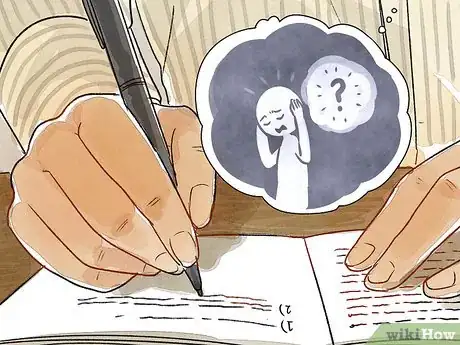
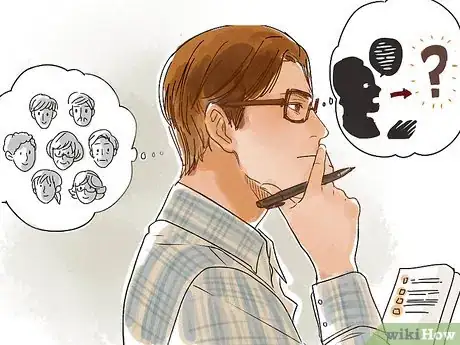
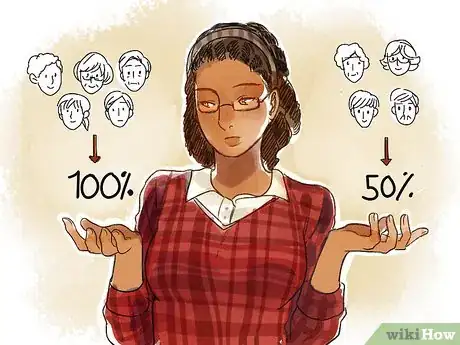
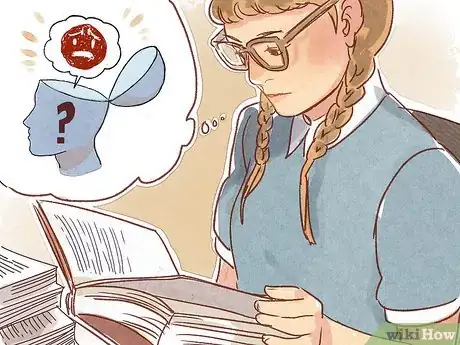
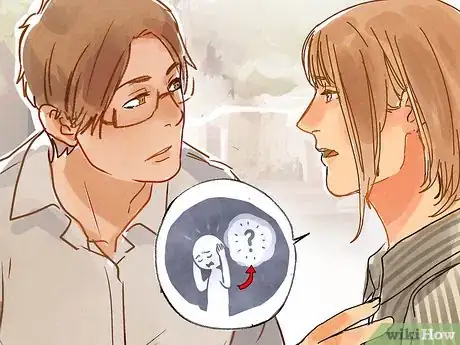
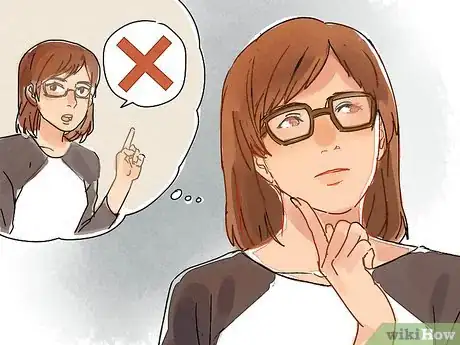
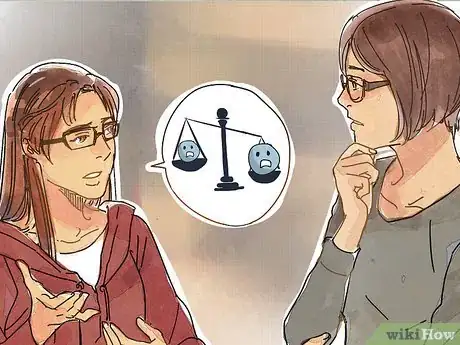
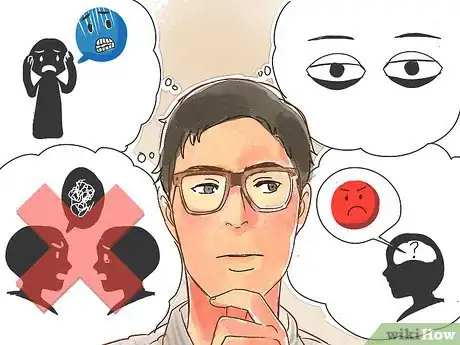
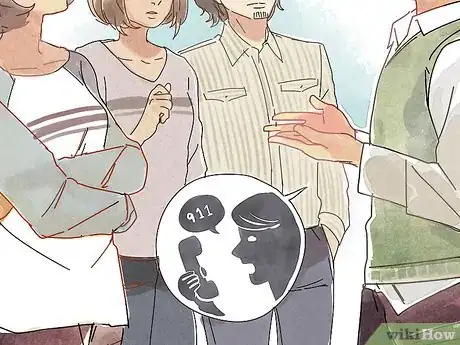
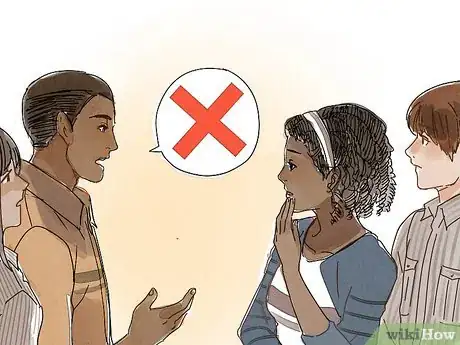

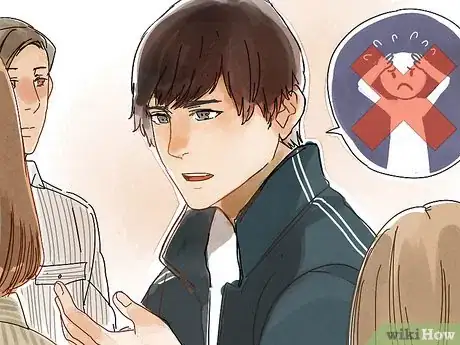
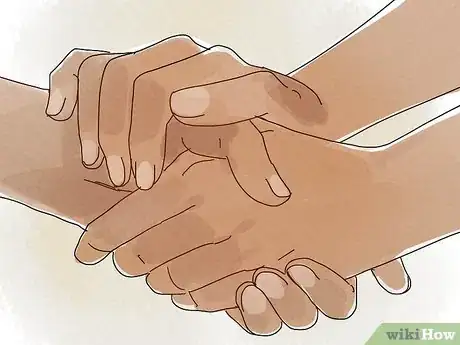





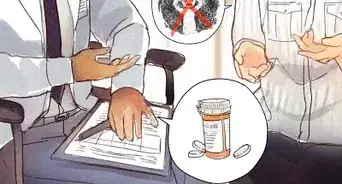


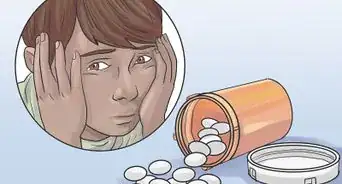




















































Medical Disclaimer
The content of this article is not intended to be a substitute for professional medical advice, examination, diagnosis, or treatment. You should always contact your doctor or other qualified healthcare professional before starting, changing, or stopping any kind of health treatment.
Read More...